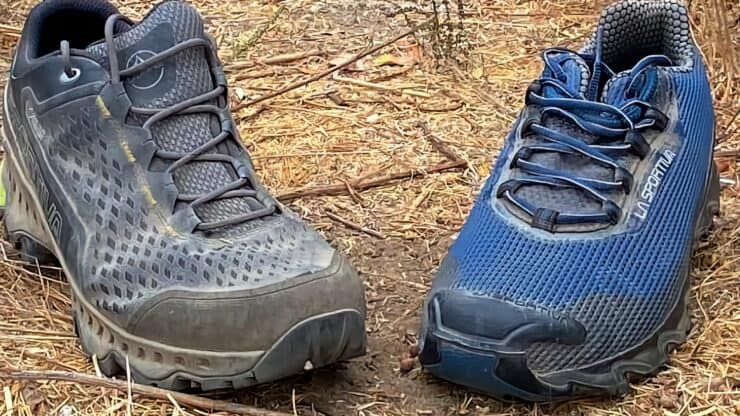

Hiking Boots or Shoes: Do I Really Need Hiking Boots?
The great dilemma – do you really need hiking boots? Or can you use hiking shoes? Or do you even need hiking shoes? This guide will sort it all out for you, but the short answer is that you probably don't need hiking boots. Hiking shoes or trail runners will be a better bet for most hikers.
- Why You Might Need Hiking Boots
- When a Trail Runner or Hiking Shoe Works
- Conditions For Heavy Hiking Boots
- Alternative Options You May Not Have Considered
I'll walk you through all the options and when it makes sense to use each one. If you want to see which specific models I recommend, check out my current gear page (updated July 2024).
This guide's recommendations are based on my experience trying lots of different hiking footwear over thousands of miles as a professional hiking guide. My experience is echoed by most long-distance PCT and AT hikers who hike day after day. No gear company pays me to push a specific shoe or solution.
| Characteristics | Recommended For | Top Pick | |
|---|---|---|---|
| Hiking Shoes | Comfortable and durable | Good for hikers wanting protection and good value | See Latest |
| Trail Runners | Lightweight and very comfortable | Good for hikers wanting most comfort and best performance | See Latest |
| Waterproof Hybrids | Dryer with more protection | Use for winter or cold weather hiking | See Latest |
| Hiking Boots | Heavy but very durable | Hikers wanting very long life and maximum protection | See Latest |
I'm going to explain what really matters in hiking footwear, but if you just want to read about each option, scroll down a bit until you reach the section on Hiking Shoes.
What You REALLY Need in Hiking Footwear
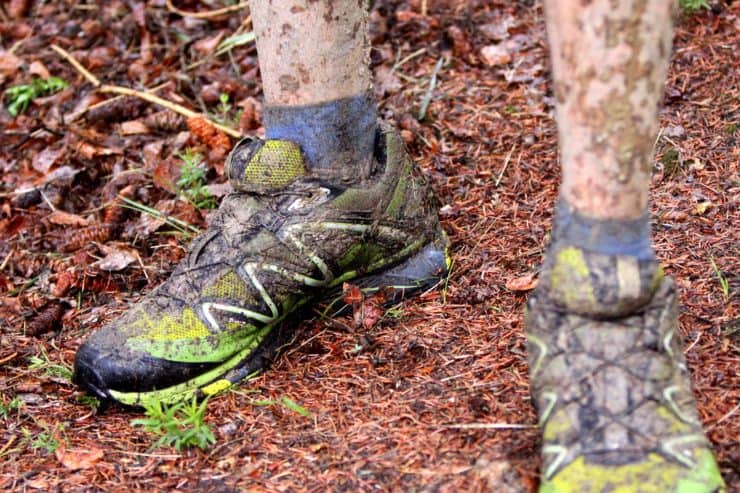
When you're picking hiking footwear, these are the factors that are important:
- They should protect your feet. That means no cuts or damage to your feet from the elements.
- They should be comfortable. You should be able to use them without getting blisters.
- They should be lightweight. You will step thousands of times when you hike. Every ounce saved on lifting your feet is more energy to hike farther.
What About Ankle Support?
On paper, a high-cuff hiking boot biomechanically supports the ankle. But my experience hiking with packs of up to about 40lbs has been that it doesn't matter. And research has shown that not only does it not matter, but it can even make your chance of rolling an ankle worse. If you're carrying so much weight that your ankles are buckling, then you've got too much weight on your back. If you roll your ankles a lot, do some ankle strengthening exercises.
Do Water-Resistant Shoes Help?
Waterproofing is another concept that looks good on paper but in practical terms doesn't do as well. And that goes for "breathable" waterproofing like Gore-Tex too. I won't go into all the details, but after thousands of miles I can tell you that you only really need it when hiking in the winter.
Instead of keeping water out, let it in. Shoes with very breathable uppers mean that your feet get wet easily, and they also dry quickly. In practical terms, out on the trail, this means that your feet are dryer and are less susceptible to blisters. If you look at any PCT or AT hiker, they almost all use breathable shoes today. So when you choose your hiking footwear, go with breathable uppers and not the waterproof version.
When water-resistant shoes get totally wet, they get waterlogged and heavy. Breathable shoes never get waterlogged.
Don't Forget About Good Socks
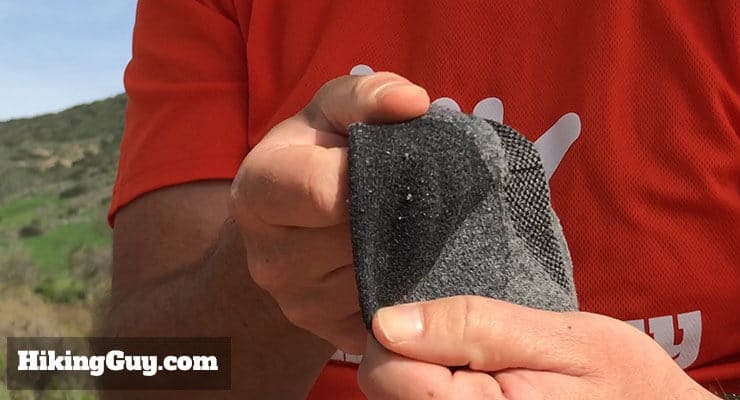
Get a wool sock that is tough and dries quickly. When conditions are sloppy wet, I've also used waterproof socks, and they work great. Socks come in different weights that equate to warmth. When it's hot, go thinner. Also, note that heavier socks can fit tighter in a shoe and cause blisters from too much friction. If you buy hiking footwear for the winter (more later), go a half-size up to allow for thicker socks.
Hiking Shoes - Good Bet For Most People
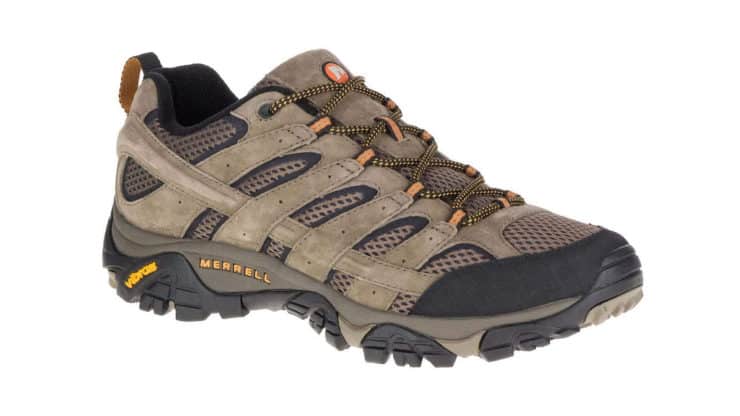
Hiking shoes take the best elements of hiking boots and trail runners and combine them into one. They are lighter and more comfortable than hiking boots, but generally offer the same level of protection (minus the cuff around your ankle). Hiking shoes are designed to last longer (about 800 miles or 9-18 months for most folks) than a trail runner but are usually a little heavier because of the extra protection. They're also a bit stiffer than a trail runner. Overall the durability, lighter weight, and and protection offer the best balance for hikers.
I took my first pair of hiking shoes on a 14 mile hike in Yosemite right after buying them. Absolutely no issues at all. Very comfortable for the entire hike, my feet felt like they could have kept going, while the rest of me, not so much. - Hiking Shoe Review
Trail Runners - The Best Bet For 3 Seasons
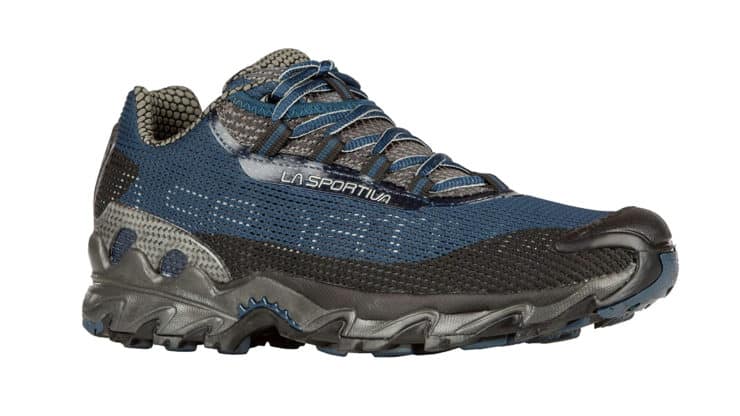
If you want the best option and are okay getting new shoes every 500 miles or so (6-12 months for most folks), go with trail running shoes. They are lighter and more "springy" than hiking shoes. Trail runners have more breathable uppers than hiking shoes, but offer less protection. If you're bushwacking off-trail, trail runners are probably not the best bet. But the lightness and comfort make hiking feel like you are walking down the street in sneakers.
Some trail runners have problems with durability and will last much less than 500 miles. But you can and should get around 500 miles out of them. Read the reviews before you buy and check out my trail runner pick (used and tested by me).
The lines between a hiking shoe and trail runner get more blurry as shoes evolve.
Water-Resistant Hybrids for Winter
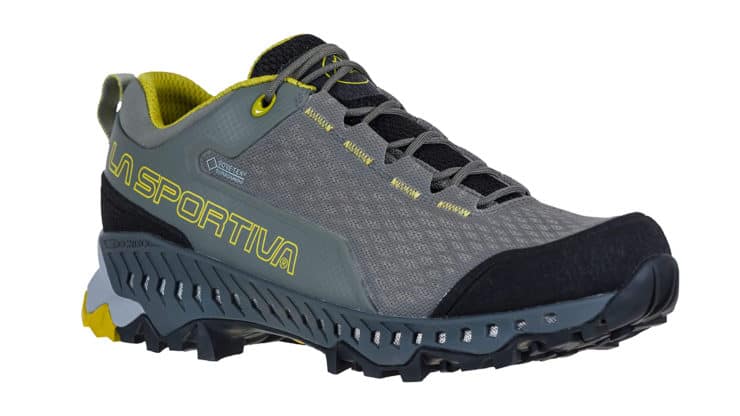
When I hike in the winter I go with a water-resistant hiking shoe / hiking boot / trail runner hybrid. It keeps my feet warm in the snow and offers good protection. If the snow level is higher I'll wear a pair of gaiters as well to keep snow from going into my shoe. The life of these is similar to a trail runner but usually lasts longer since most people don't do as much winter hiking than in the rest of the year.
Hiking Boots
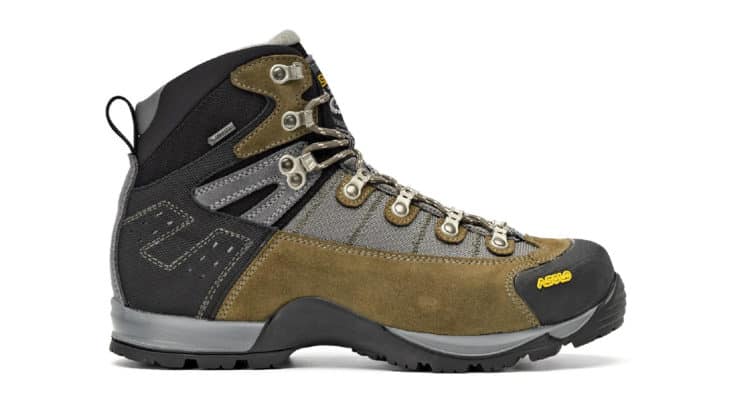
If you just want the maximum protection and a shoe that will last (potentially) for thousands of miles, go with a hiking boot. I don't wear them anymore, but when I did they were though as nails. Overall they're heavier and require more energy to hike with. If you are going off-trail or want something very beefy for all conditions, including winter, a hiking boot is a good choice.
Other Important Points
- If you don't have any special hiking footwear, go with your most comfortable sneakers.
- Some people swear by hiking sandlals in hot weather. I used to use Chacos and they're great, but switching to a breathable trail runner eliminated the need for sandals.
- If you get a leather hiking boot, you will need to break it in. There are some great traditional (and heavy) leather boots out there but I don't touch them anymore because I want to take them out of the box and just hike.
- A reader wrote in and mentioned that they wear hiking boots to protect against rattlesnake bites. They mentioned that they had been bit in the boot twice and that the boot stopped the snake bite. I hike in rattlesnake country pretty much all the time and have never had that happen, but if you're scared of snakes or want that level of protection, a hiking boot is something to consider.
- Gaiters can keep out dirt and grit. For me it's easier to just dump out my shoes occasionally than have another piece of gear to deal with.
- If you wear shoes with a breathable upper, your feet will usually get a decent amount of dirt on them.
- If you're hiking in snowy and icy conditions, bring a pair of micro-spikes.
Need More Info?
- Have a question about the guide? Join my Patreon and ask me a question.
 Hiking For Beginners: 11 Essential Tips
Hiking For Beginners: 11 Essential Tips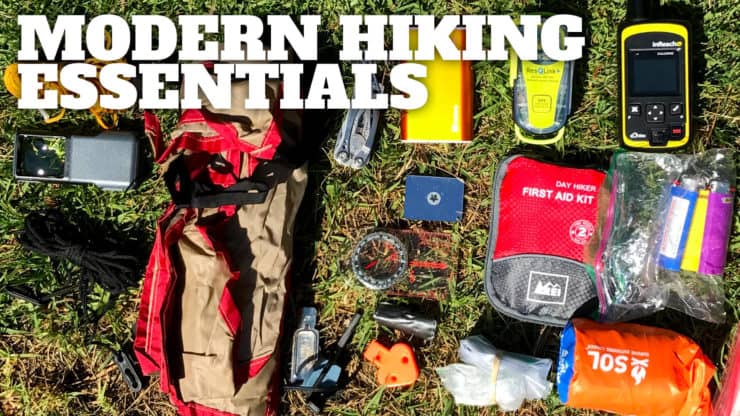 The Modern Hiking Essentials
The Modern Hiking Essentials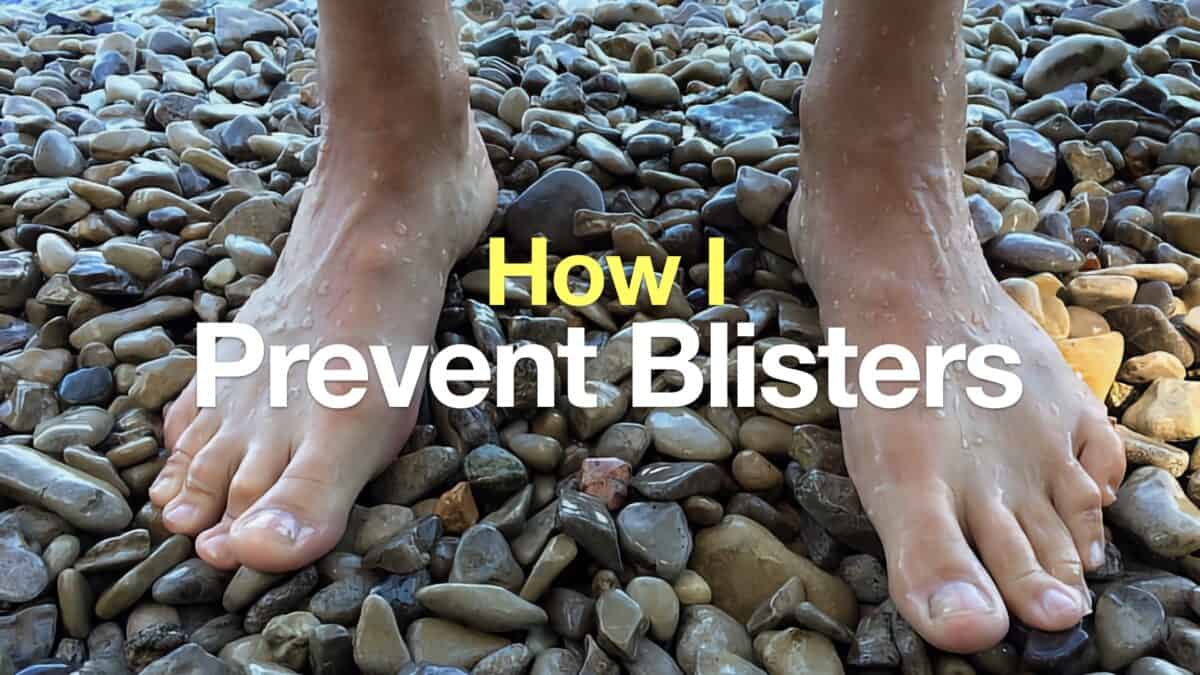 How To Prevent Hiking Blisters
How To Prevent Hiking Blisters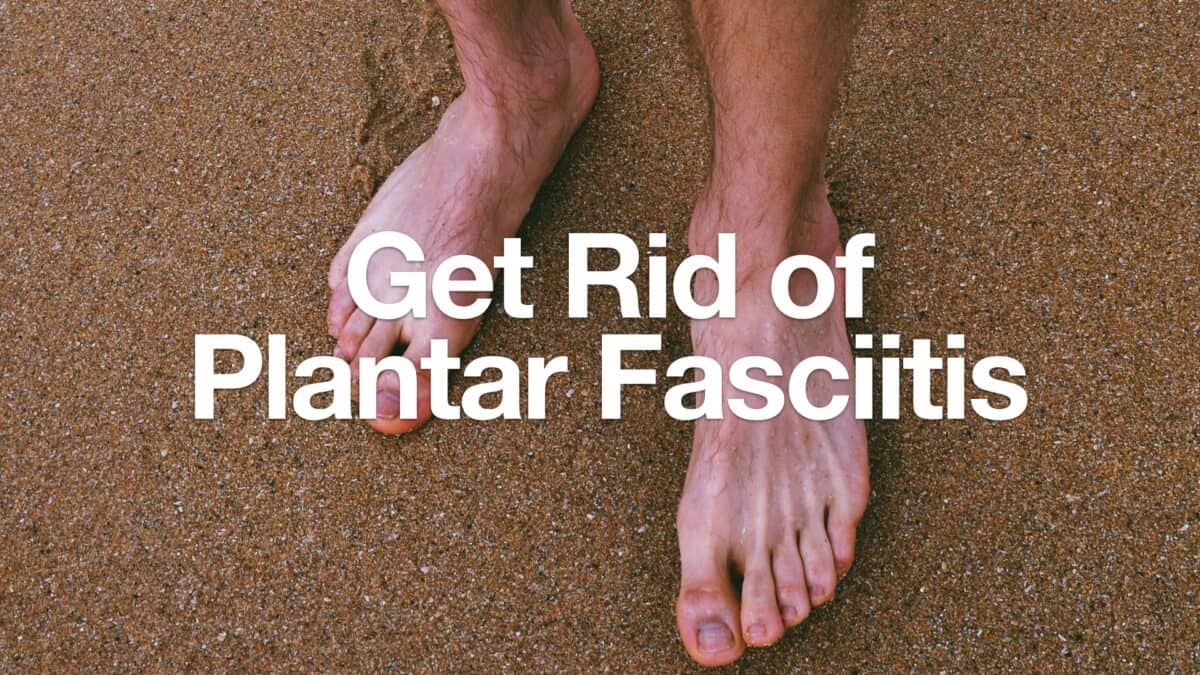 Hiking With Plantar Fasciitis: A Cure
Hiking With Plantar Fasciitis: A Cure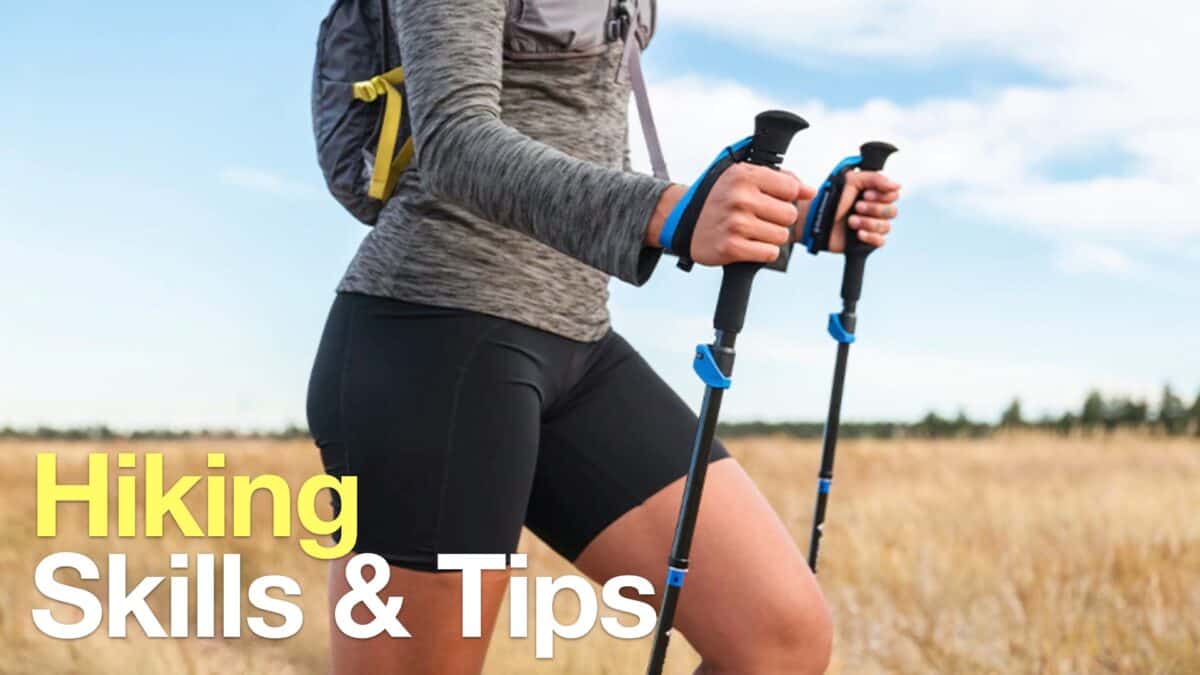 How to Hike
How to Hike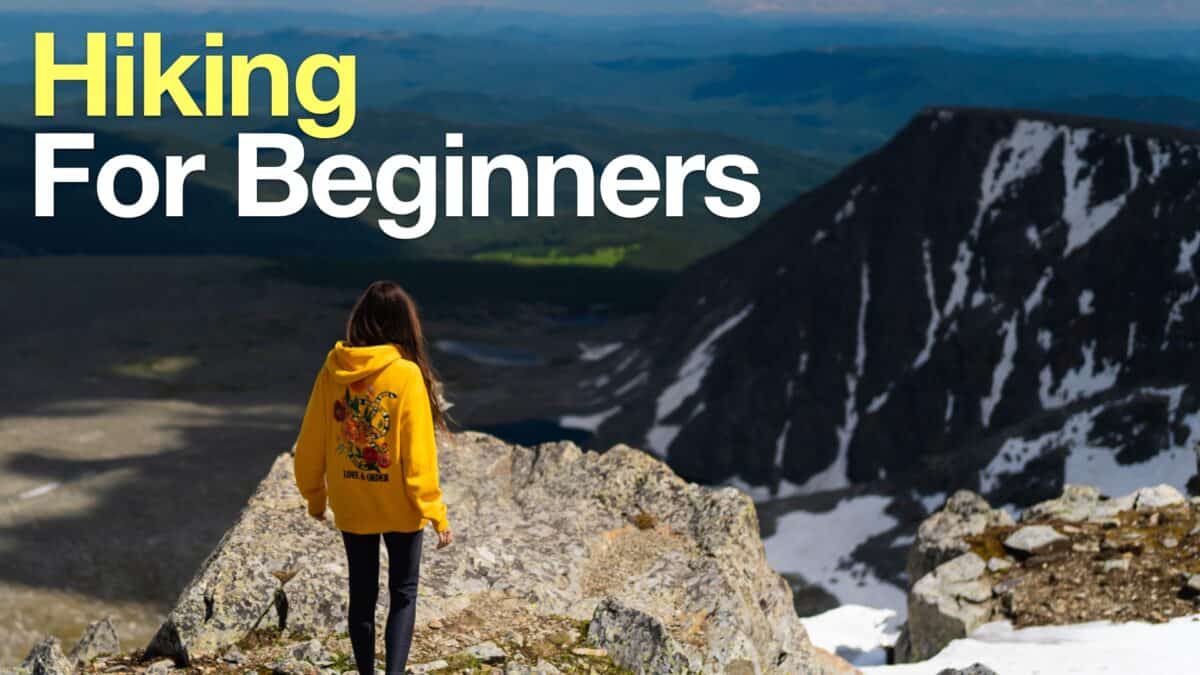 How To Get Started Hiking
How To Get Started Hiking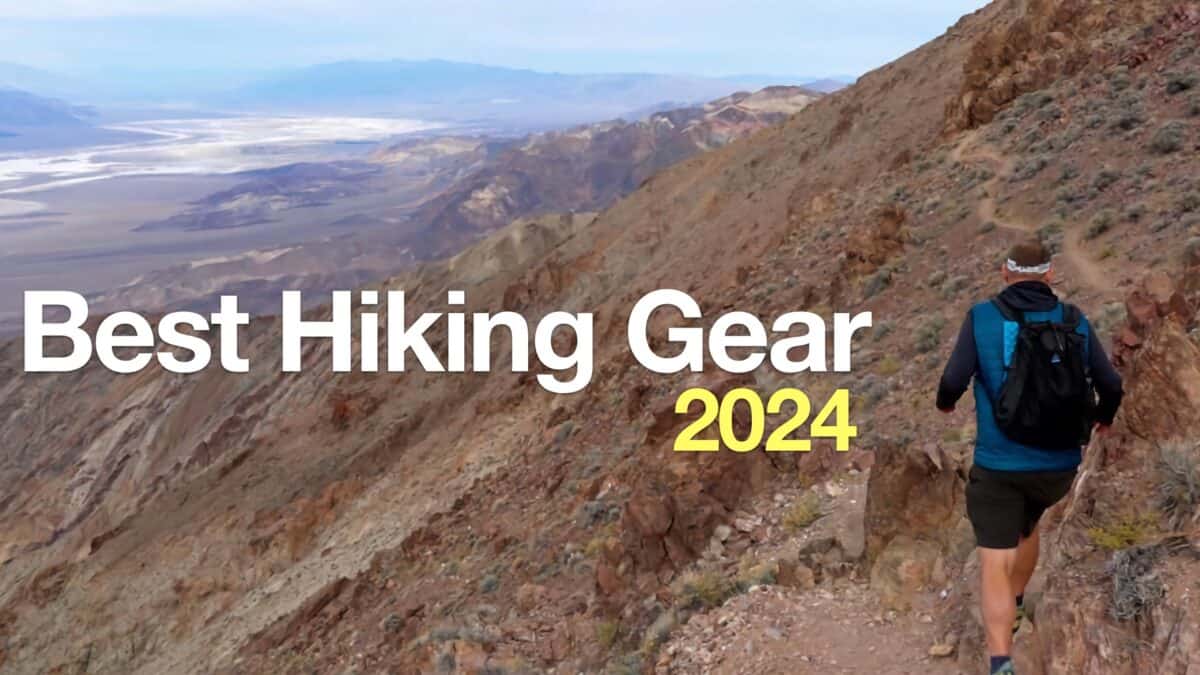 Best Hiking Gear 2024
Best Hiking Gear 2024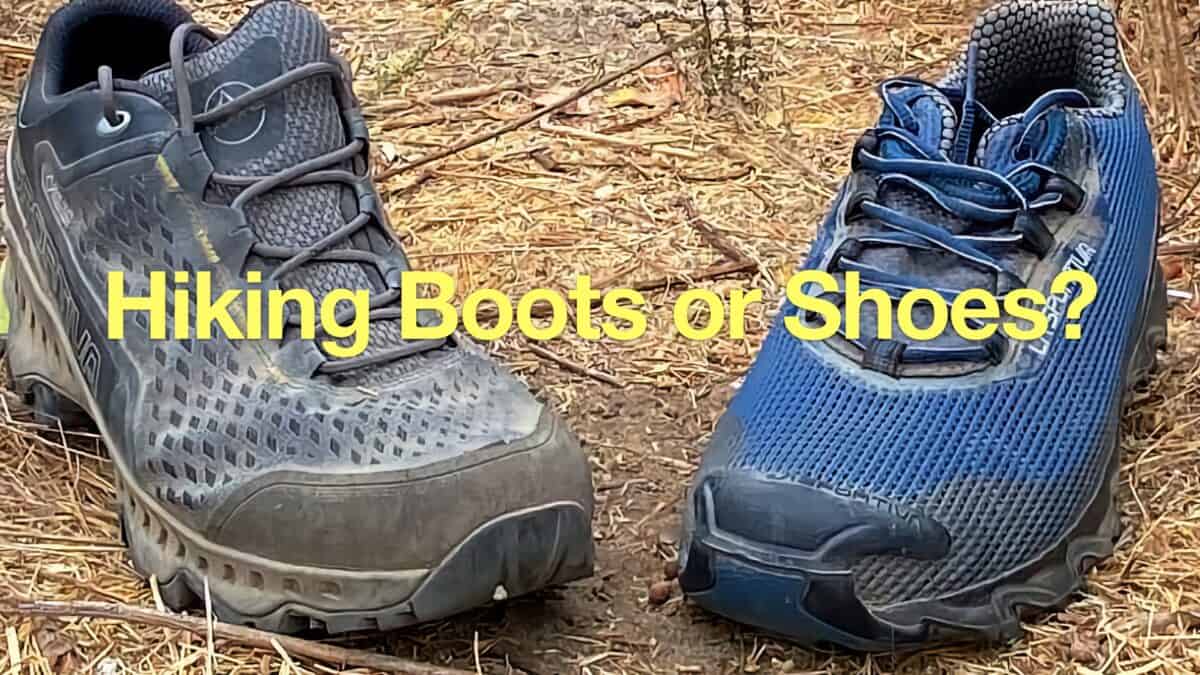 Hiking Boots or Shoes: Do I Really Need Hiking Boots?
Hiking Boots or Shoes: Do I Really Need Hiking Boots? When to Hit SOS on inReach
When to Hit SOS on inReach